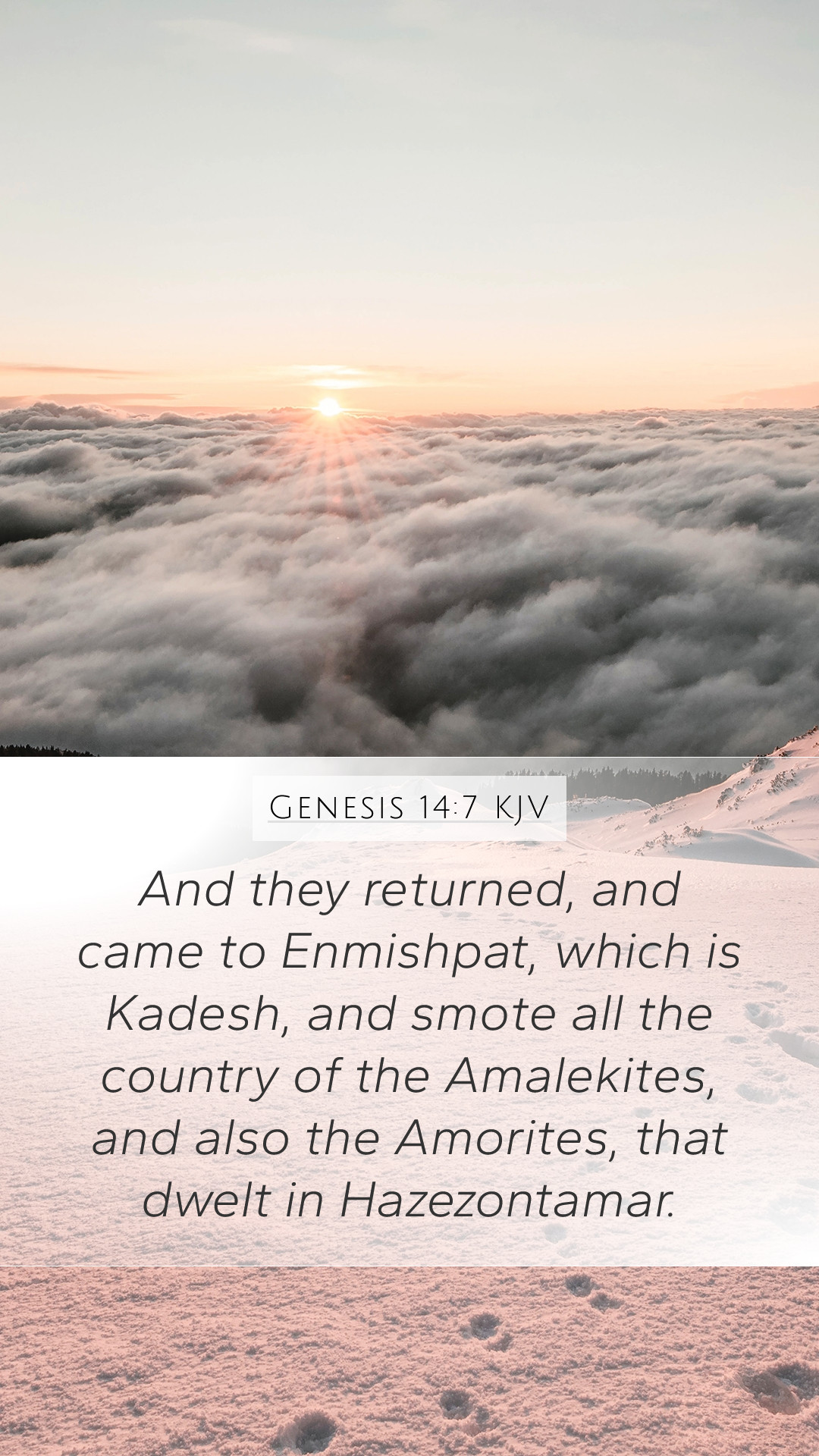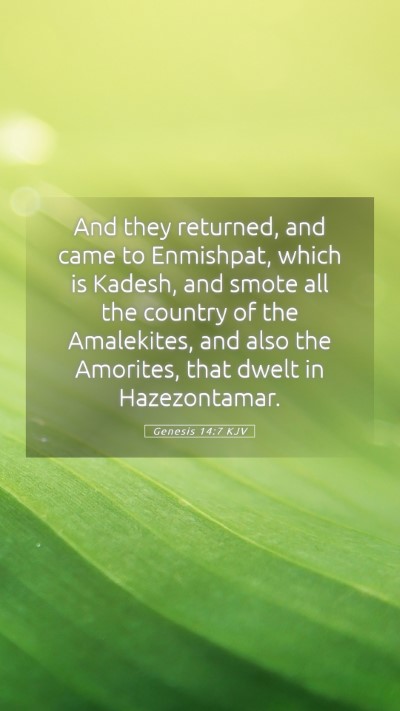Bible Verse Commentary on Genesis 14:7
In Genesis 14:7, we find an account of Abram's military ventures during the time of conflict among kings. The verse states,
"And they returned, and came to Ein Mishpat, which is Kadesh, and smote all the country of the Amalekites, and also the Amorites, that dwelt in Hazezontamar."
This passage illustrates a significant event in biblical history where Abram, at this point still known as Abram before his covenant with God, is portrayed as a leader who intervenes on behalf of his nephew Lot.
Understanding the Context
To fully grasp the meaning of this verse, it is essential to consider the historical and cultural context surrounding it. The battle that took place involved multiple kings and reflects the tensions and conflicts that characterized the ancient Near East.
Matthew Henry emphasizes the importance of recognizing Abram's role and moral responsibility in rescuing Lot, reinforcing that his actions were not only courageous but also morally commendable.
Insights from Commentaries
-
Albert Barnes highlights that Abram's victory over the Amalekites and Amorites signifies divine support in his endeavors, suggesting that the initial decision to rescue Lot was not merely a family obligation but was also endorsed by God.
-
Adam Clarke delves into the locations mentioned, such as Ein Mishpat and Kadesh, explaining their geographical and symbolic significance; Kadesh often represents a place of decision and covenant.
Lessons from Genesis 14:7
The account of Abram's campaign against the invading kings serves several purposes:
- Faith and Courage: Abram exemplifies faith by trusting in God to deliver his nephew. This is a key takeaway for believers on relying on divine guidance in times of crisis.
- Leadership: Abram’s leadership highlights the qualities of a good leader—protectiveness, decisiveness, and the willingness to act for the welfare of others.
- Moral Responsibility: The recounting of Abram rescuing Lot reiterates the importance of familial duty and moral obligation.
- God’s Providence: The victory over the powerful Amalekites and Amorites stands testament to God’s providence and intervention in human affairs.
Bible Study Insights
For those engaged in Bible study groups or seeking online Bible study resources, this passage serves as a rich text for discussion.
Understanding Scripture in light of Abram's actions encourages deeper exploration into the dynamics of conflict, faith, and divine intervention.
Cross References
Some related Bible verses that enhance the understanding of Genesis 14:7 include:
- Genesis 12:1-3: The calling of Abram and the divine promises given to him.
- Genesis 13:8-9: The separation of Abram and Lot, which sets the stage for the events of chapter 14.
- Exodus 17:8-13: Moses defeating the Amalekites, drawing parallels in divine conflict.
- 1 Samuel 15:2: God’s judgment against the Amalekites for their persistent opposition to Israel.
Applying the Verse Today
The message of Genesis 14:7 can be applied to daily life by recognizing our responsibilities towards family and community, advocating for justice, and acting courageously in the face of challenges.
Understanding difficult Bible passages such as this one can deepen one’s spiritual journey and enrich Bible study lessons.


